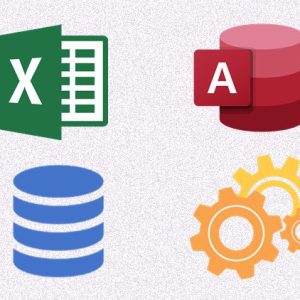What’s the Bill About?
India is poised to enact a sweeping Promotion and Regulation of Online Gaming Bill, 2025, aiming to control the booming digital gaming industry with a two-pronged approach:
- Ban on Real-Money Online Games
- All online games played with monetary stakes—even those labeled as skill-based—are prohibited.
- Platforms offering such services, or facilitating them through ads, promotions, or payments, face criminal penalties.
- Offending platforms—and potentially even endorsers such as celebrities—can face up to 3 years in prison and fines up to ₹1 crore.
- Promotion and Oversight of Safe Gaming
- Games categorized as e-sports, educational, or social gaming (with no monetary stake) are officially recognized and encouraged.
- The government aims to foster a structured, innovative gaming ecosystem, potentially positioning India as a global hub for game development.
How It Works: Key Components
1. Regulatory Body
- The bill proposes setting up a national gaming authority to oversee policy, licensing, and classification of games.
- All gaming platforms must be licensed to operate legally; unlicensed activities invite serious penalties.
2. Banned Activities
- These include playing, offering, promoting, advertising, or facilitating any online money-based games, without exception—even those based on skill.
3. Classified Gaming
- Allowed Categories:
- Esports (competitive video gaming),
- Educational games, and
- Social gaming (casual games without cash stakes).
- Banned: Fantasy sports, poker, rummy, lotteries, or any game involving deposit-based monetary winnings.
4. Penalties and Enforcement
- Jail terms of up to 3 years and/or fines up to ₹1 crore for violations.
- Even advertisements promoting money games are criminalized, potentially drawing similar penalties.
5. Protection & Innovation
- The bill differentiates between harmful and legitimate gaming—protecting youth and vulnerable groups from addiction, fraud, and psychological harm.
- Supports structured growth in skill-based gaming, acknowledging the potential for innovation and job creation.
Real-World Examples
- Fantasy Sports Apps (e.g., Dream11, MPL)
Previously allowed as skill-based, these are now included in the ban. From fantasy cricket to premium mini-games, all forms with deposit-linked winnings face prohibition. - Esports Tournaments
Games like Valorant or Dota 2, typically aired in competitions or school clubs, are still permitted—since they don’t inherently involve monetary bets. - Social and Educational Games
Think of Ludo, quiz apps, or math learning games—they remain unaffected. Safe, casual entertainment remains encouraged.
What This Means for India
Industry Impact
- The ban could dismantle a multi-billion-dollar real-money gaming sector overnight—significantly affecting startups, publishers, and investors.
- Platforms may pivot to subscription models or ad-based revenue to survive.
Government Strategy
- The policy draws a firm line between entertainment (encouraged) and gambling (prohibited), addressing rising concerns about addiction, fraud, and money laundering.
Social Implications
- Youth and economically vulnerable groups may be shielded from financial tolls inflicted by addictive mechanisms and dubious game design.
Summary Table
| Aspect | Details |
|---|---|
| Scope | Bans online money games; promotes e-sports, social, and educational gaming |
| Licensing & Enforcement | Requires licensing; unlicensed services face penalties |
| Penalties | Up to 3 years imprisonment and ₹1 crore fine for violations |
| Objective | Protect public welfare; promote responsible online gaming |
| Support Mechanism | Legal backing for a national gaming regulator |
| Industry Shift | Real-money gaming banned; skill-based sectors get government support |
🔴 Impact on Dream11
1. Complete Ban on Real-Money Games
- Dream11’s core business model is based on fantasy sports contests with entry fees and cash winnings.
- Under the new bill, any game involving monetary stakes is prohibited—whether classified as “skill-based” or not.
- This means Dream11 cannot legally operate its paid contests in India once the law takes effect.
2. Revenue Collapse
- Dream11’s revenue primarily comes from commission on contest entry fees.
- Example: If 1,000 people join a ₹50 cricket contest, Dream11 might pool ₹50,000 but distribute only ₹45,000 as prizes—keeping the margin.
- With money games banned, this revenue stream disappears overnight.
3. User Engagement Shift
- The app may try to pivot to free-to-play models, offering:
- Ad-supported gameplay (watch ads to play contests).
- Subscription services (pay monthly for exclusive tournaments without cash winnings).
- However, free contests typically don’t retain users at the same scale, so Dream11’s user base may shrink.
4. Legal Penalties
- If Dream11 continues offering cash contests, it risks:
- Fines up to ₹1 crore,
- Up to 3 years imprisonment for executives,
- Potential app store delisting in India.
5. Impact on Sports Ecosystem
- Dream11 has been a major sponsor of the IPL, Indian cricket team jerseys, and kabaddi leagues.
- If banned, this could lead to:
- Loss of sponsorship revenue for sports bodies.
- Smaller franchises and leagues struggling financially.
- Example: In 2020, Dream11 was the title sponsor of the IPL, worth over ₹220 crore in a single season. Without such funding, sports events may seek alternate sponsors.
🟢 Possible Survival Strategies for Dream11
- Esports Expansion: Launch fantasy-style leagues for video games (without real money).
- Global Operations: Focus more on countries where fantasy gaming is still legal.
- Educational Gaming Spin-off: Offer sports quizzes, prediction games, or training modules categorized as “educational.”
- Ad Partnerships: Convert contests into free-entry with ad sponsorships for prize pools.
⚖️ Final Word
Dream11, which has been India’s most successful fantasy gaming unicorn, faces an existential threat under the Online Gaming Bill. Unless it quickly adapts its business model away from real-money contests, it risks becoming obsolete in the domestic market.
Disclaimer
This article is for informational purposes only and reflects current discussions around the proposed Online Gaming Bill, 2025. The legislation may undergo revisions before becoming law. For official provisions and updates, always refer to the final legal text or authorized government communications.
My Recommendation
-
Acer Aspire Lite (AL15-41) – AMD Ryzen 3 Laptop with 16GB RAM & 512GB SSD
-
HP 15 AMD Ryzen 3 7320U Laptop – Affordable Performance with Style
-
HP 15 Laptop – 13th Gen Intel Core i3 (12GB RAM, 512GB SSD)
Original price was: ₹52,721.00.₹33,990.00Current price is: ₹33,990.00. -
Lenovo SmartChoice Chromebook (82UY0014HA) – Compact & Affordable Everyday Laptop
-
Master Google Workspace (G Suite) – Gmail, Docs, Drive, Sheets, Meet & More
-
Master MIS Reporting & Analysis – Excel, VBA, Access, SQL (Hindi Training)
-
Microsoft Excel 365 – From Beginner to Advanced (Complete Course)
-
Primebook 2 Neo 2025 – The Next-Gen Budget Laptop for Students & Professionals








